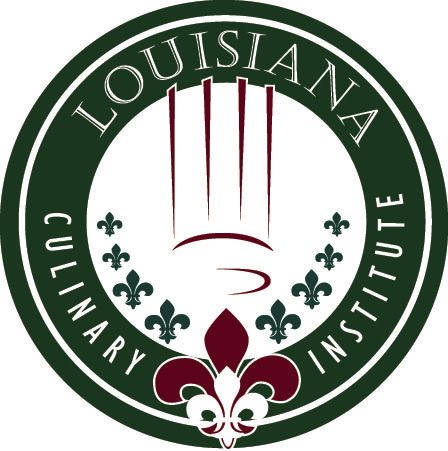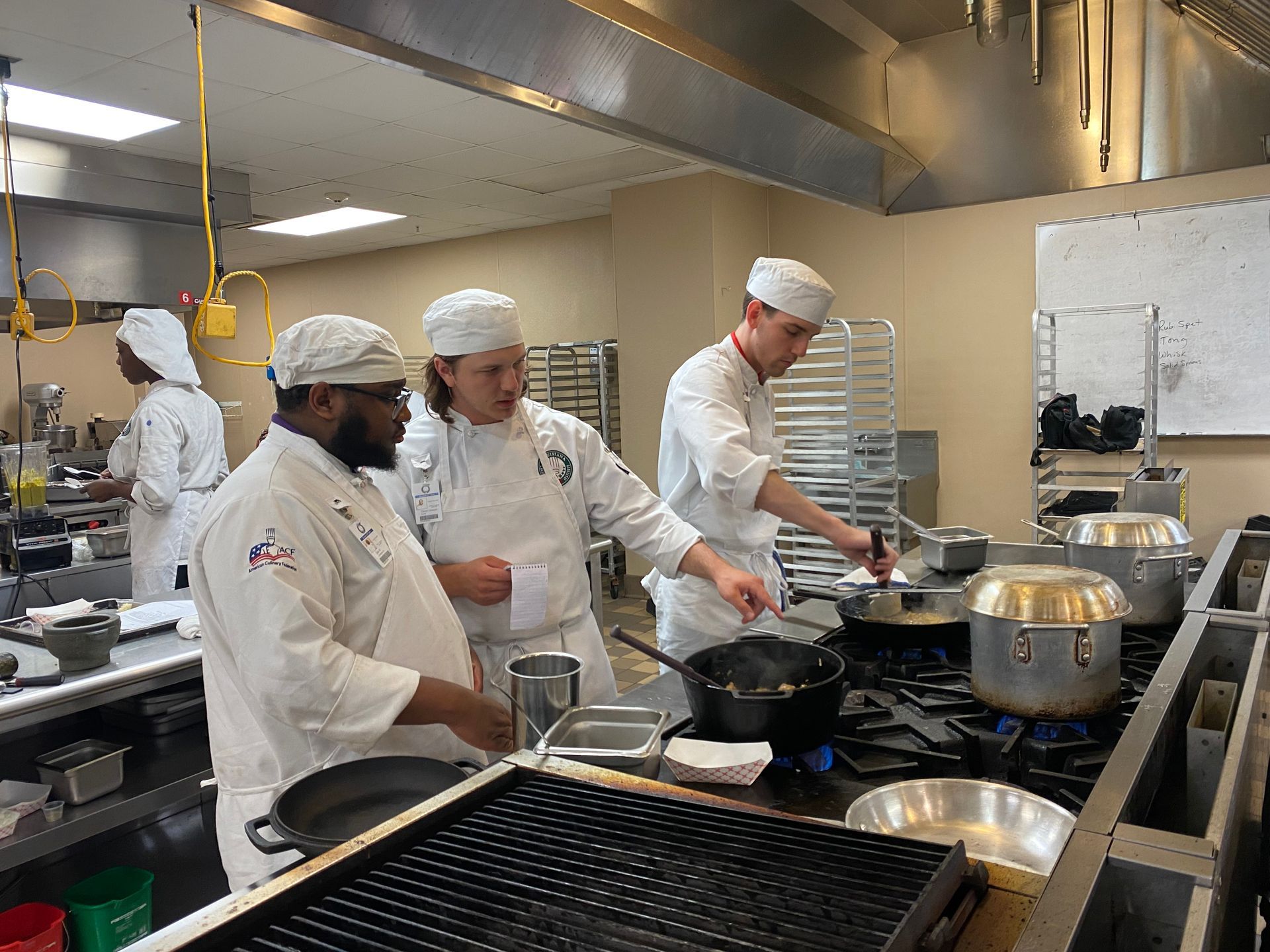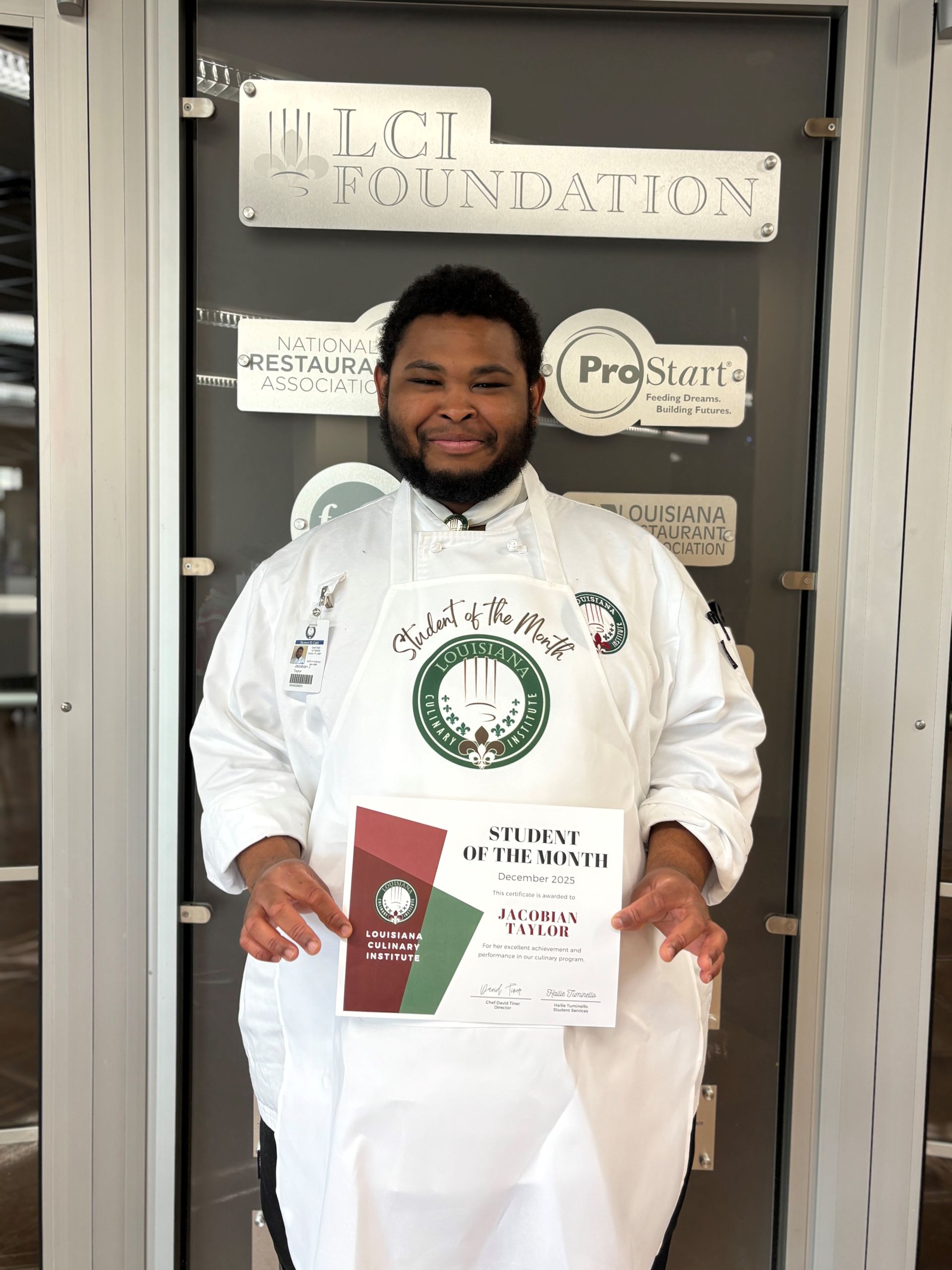Becoming a Professional Chef: What Do You Learn in Your Second Semester at Culinary School?
There are many paths that can lead to becoming a professional chef. No matter what path you choose or find yourself on, it should take you to and through culinary school. Learning from professional chefs and instructors is a remarkably effective way to learn the skills, strategies, and tactics in the kitchen as well as developing relationships and networks that can help you grow and succeed throughout your career. Just like in your other educational experiences, each class, each term, each semester builds on the previous one. Let’s take a closer look at what the second semester at Louisiana Culinary Institute has to offer.
The second semester, or blue level at LCI progresses from the introductory level classes from the first semester.
CA 103 – Professional Cooking III
In this course students will learn the basics of meat, poultry, and seafood cookery. The identification of primal cuts of beef, veal, lamb, and pork and a list of the fabricated cuts from each will be taught. The proper handling and cooking of poultry, utilizing both moist and dry heat cooking methods with an emphasis on the correct procedure used the slow-roasting of large birds will be another focus in this class.
CA – 103 is 2 semester credit hours.
OR
CA 110 - Introduction to Baking and Pastry
Introduction to Baking and Pastry teaches the fundamentals of the commercial kitchen bakeshop. Students will learn bakeshop principles and they are applied in the cakes, pastries, ice creams, cookies, sorbet, and pie production in commercial bakeries. This course is 2 semester credit hours.
CA 122 – Restaurant Production II
CA 122 is deigned to teach students the proper cooking techniques for commercial food service. Students are given an extensive review of cooking techniques and procedures, measurements, knife skills, and mise en place. They will also be required to prepare and serve examples of each technique and procedure on meats, poultry, seafood, vegetables, and starches for the faculty/staff/student meal service. CA 122 is 1 semester credit hour.
CA 132 – Restaurant Service II
This course teaches the proper serving techniques required in commercial food service. Students will learn proper serving techniques and wait staff service management. At the end of this course students will take the National Restaurant Association Educational Foundation’s (NRAEF) ManageFirst® certification test for front of the house service management. CA 132 is 1 semester credit hour.
CA 105 – Professional Cooking V
Professional Cooking V teaches students the basics of salads, sandwiches, and hors d’oeuvres cookery. They will also learn the basics of hot and cold food presentation and garnish. An introduction of the types of salads produced in food service and their preparation techniques will be included. Also, techniques for the production of different types of sandwiches are demonstrated along with the preparation and proper production of hors d’oeuvres. Another focus will be on teaching students the importance of presenting food attractively and the teaching of techniques that use the balance of color, shape, and texture. CA 105 is 2 semester credit hours.
CA 106 – Professional Cooking VI
This course focuses on the basics of breakfast cookery, dairy products, and breakfast beverages, as well as the many types of egg production, breakfast breads, and breakfast meats. Students will also learn the various types and production of dairy products, including an introduction to cheeses, and proper coffee and tea service. CA 106 is 2 semester credit hours.
CA 123 – Restaurant Production III
This course offers the opportunity to practice cooking techniques and prepare menu courses for the faculty, staff, and student meal service. This emphasis in this kitchen laboratory is on the preparation of meats, poultry, seafood, vegetables, and starches utilizing both dry and moist heat cooking methods appropriately. CA 123 is 1 semester credit hour.
CA 133 – Restaurant Service III
In restaurant service III students will practice techniques in serving food menu courses for the faculty, staff, and student meal service. Students will cultivate their front of the house service and management techniques, including training on the MICROS system. CA 133 is 1 semester credit hour.
CA 211 – Introduction to Hospitality and Restaurant Management
This course is designed as an overview and introduction to the hospitality and restaurant management industry, with a specific focus on leadership and management techniques. As a National Restaurant Association Educational Foundation’s (NRAEF) ManageFirst® Program Core Credential course, students are eligible to take an NRAEF certification test at the end of this course. CA 211 is 2 semester credit hours.
CA 112 – Catering and Volume Food Service
This introductory course on catering for food service and hospitality managers with guidelines and a practical approach to operating and managing a catering business. This includes the guidelines on how to do on and off premise catering, hire and manage catering personnel, writing a contract, sanitation, set up a kitchen, set up and use food service equipment, conduct special events and kosher catering, along with wine and bar service, menu making, and food presentation. CA 112 is 2 semester credit hours.
ENG 101 – English Composition (Humanities)
This is a basic course on English grammar and composition designed to provide students with a detailed, structured approach to composition using the three steps writing process: prewriting, writing, rewriting. This couse includes a review of grammar, offers opportunities for general and career-focused writing, and encourages improvement through addressing the writer’s audience and purpose by providing tools for proofreading and editing. ENG 101 is 3 semester credit hours.
Start you culinary journey at the premier culinary school of the south, and experience these courses at LCI.


